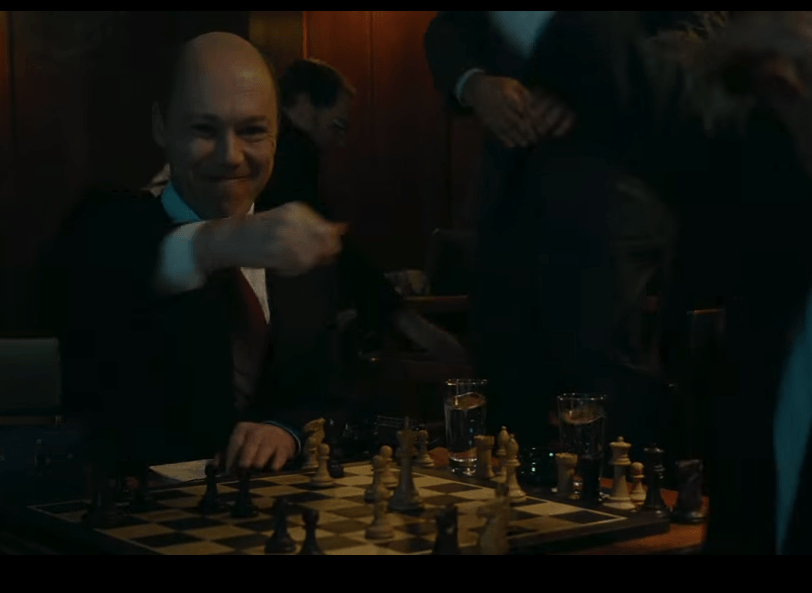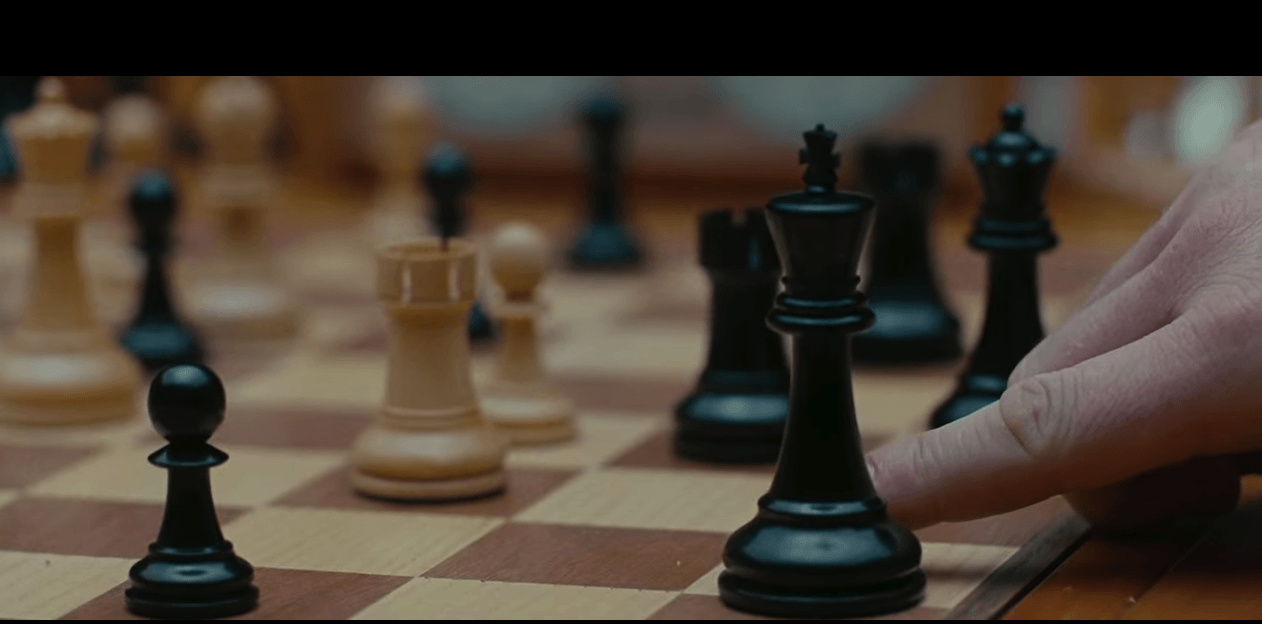
Did Hollywood Get 'Pawn Sacrifice' Right?
By now many Chess.com members have seen the first trailer for Pawn Sacrifice, the Hollywood movie based on the rise of Bobby Fischer to world chess champion. We've known for a while that Spiderman, or rather Tobey Maguire, was to play the five-inch-taller Fischer (a subject of debate among chess fans) but what else can we discern from the previews?
I decided to do some research!
The film claims to be based on a true story and seems to focus on the 1972 match with Boris Spassky, as well as the usual overtones of Cold-War-era politics and the beginnings of Fischer's paranoia.
If you weren't lucky enough to be at the Toronto Film Festival premiere (and this author wasn't!) you'll have to wait until September 16 for the official theatrical release in the U.S. (New York and Los Angeles; Sept. 18 the rest of the U.S.). If you haven't checked your Facebook or Twitter feed lately (or you don't have any chess friends!), here's the official trailer:
For now, one big question is whether the actual chess content is correct. There's no word on who the chess consultant was (but I can confirm that IM Danny Rensch was not contacted this time, even though he was previously the Life of a King resident master!). If you look through the full credits on IMDB, it seems there were speech coaches and general researchers, but nary a chess player is to be found.
***Update -- Chess.com has confirmed that FM Richard Bérubé of the Quebec Chess Federation (La Fédération Québecoise des Échecs) was the chess consultant.
So let's take a look at the chess we can actually see in the trailer. Let us know your own thoughts on the trailer in the comments below and on Facebook, or vote in the official Chess.com survey.
Warning -- you may have to pause the video very carefully to catch the chess action discussed here!
At 0:18, the claim is made that "after only four moves there's more than 300 billion options to consider." Does the math hold up?

The narrator, which sounds like the voice of Peter Sarsgaard (playing GM William Lombardy), is likely focusing on move pairs, i.e. eight ply. We can assume he means positions, not routes to get to those positions.
The numbers are mind-boggling and not even an exact science at eight ply (even the number of positions at four ply was not rendered exact until after the turn of the 20th century). The closest reputable estimate I found was 988,187,354 positions after eight ply, a far cry from 300 billion.
If you assume the narrator is referring to possible moves, not positions, then eight half-moves would yield about 25.6 billion options, assuming 20 possible moves per side for four full turns.
We're not discussing Shannon's number of total possible positions, but if you have a closer estimate, let us know in the comments (and where you got your math degree!). None of this takes into account Lombardy dressed in his Roman Catholic priest frock, which is ubiquitous in the trailer, but the web does not show any pictures of Lombardy wearing it in Iceland.
Staying in the same frame at 0:18 and continuing on to 0:19, a series of animated chess moves appear. Is the notation correct? Well, sort of.
The movie weirdly oscillates between algebraic notation and descriptive notation, which chess players almost never do.

For his part, Fischer always wrote in descriptive (i.e. P-K4, not e4). Even his notation in the 1992 rematch with Spassky was in descriptive, proving that whatever system you learned with, you're likely to keep forever.

But in the movie, we see "K-H7" (algebraic) in the same animation as "P-B4" (descriptive) on the c-file, so clearly this is referencing the pawn on bishop four, or c5. Also, the notation in the trailer seems to represent a mix of both where pieces are and where they could move -- perhaps a visual metaphor for Fischer's mad genius and the way he obsessively viewed the game.

Luckily, no chess board seems to forget that bottom right is light, or that the queen starts on her only color (the "usual" mistakes by Hollywood). The closest we come to a potentially misaligned board appears at 0:48 in the trailer...

...but luckily, on further examination, it seems like the board is set up correctly and the camera is just showing a different angle.
What about the positions themselves?
Although I didn't perform an exhaustive analysis, it does seem that they used actual chess games from the 1972 match, and got them right!
At 2:17, for just a brief fraction of a second we see a chess position with a white queen and rook invading the black kingside.

It didn't take long to see that the position was from match game six of the 1972 championship. After a devastating exchange sacrifice on f6, Black shuffled his king from g8 to h8 on his 40th and final move. Compare the film to the game!
The chess writer Olimpiu Urcan points out another real chess position used by the movie:
This position from the "Pawn Sacrifice" trailer is from Janowsky v Maróczy, Munich 1900, a fine Albin Counter-Gambit. pic.twitter.com/jim199Hu2g
— Olimpiu G. Urcan (@OlimpiuUrcan) May 28, 2015
Outside of chess, the film seems to get quite a few important details right.
Fischer famously appeared on Dick Cavett's show in 1971, and the look and demeanor in the film matches the actual footage quite well.

Compare those moments in the trailer with the actual Cavett interview, below. Fischer remarks that the greatest moment in chess for him is when he breaks his opponent's ego:
I'm definitely looking forward to seeing more of the Cavett interview recreated in the full movie. Score another point for the film.
So aside from the chess notation and a bit of fuzzy math, it seems like the only real goof you can discern from the trailer is Liev Schreiber's Russian accent. 
Do you think the trailer got things right? Are you looking forward to the movie? Let us know in the comments!






